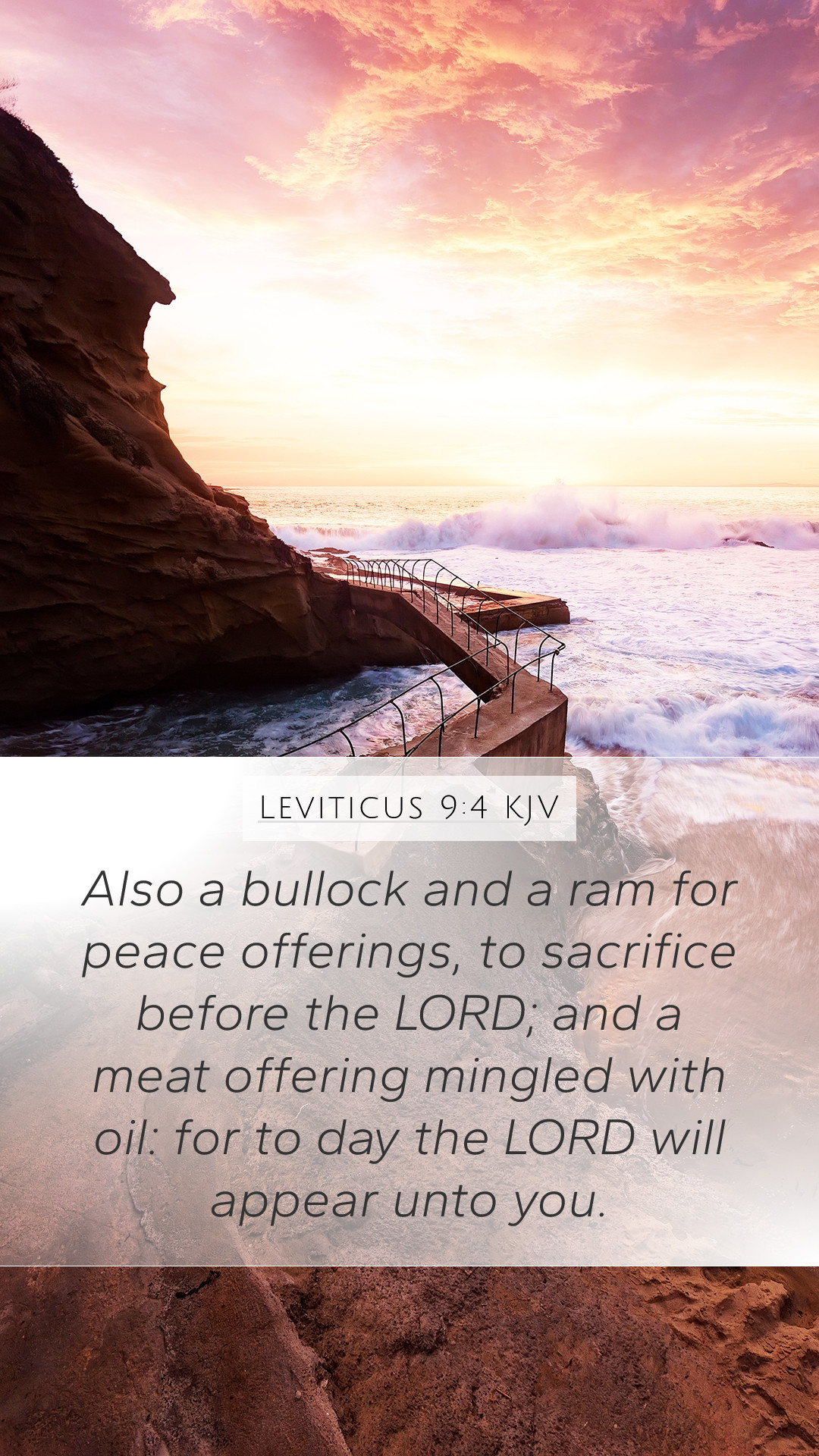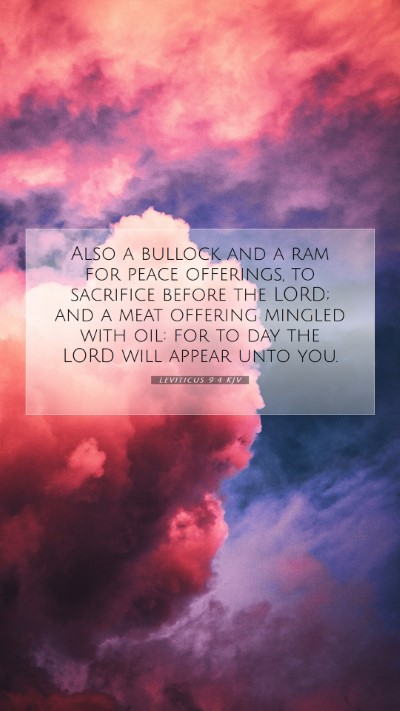Understanding Leviticus 9:4
Leviticus 9:4 reads: "And a bull and a ram for peace offerings, to sacrifice before the LORD; and a meat offering mingled with oil: for to-day the LORD will appear unto you." This verse is part of the inauguration of the priesthood of Aaron and speaks profoundly about the sacrificial system in Israel. Below we explore the meanings, interpretations, and significance of this passage drawing insights from renowned public domain Bible commentaries.
Bible Verse Meanings
Leviticus 9:4 emphasizes the importance of offerings in the worship of Yahweh, showcasing the covenant relationship between God and Israel. The offerings mentioned—peace offerings, meat offerings, and preparations for the Lord's appearance—indicate a time of communion and divine presence.
Peace Offerings
Matthew Henry notes that the peace offerings symbolize reconciliation and communion with God. These offerings were an expression of thankfulness and a means to foster peace between the worshipper and the Creator.
Meat Offering
Albert Barnes elaborates that the meat offering, often consisting of fine flour and oil, reflects dedication, devotion, and the acknowledgment of God’s provision. It signifies that the worshipper is offering their best to God, recognizing His sovereignty over their lives.
The Lord’s Presence
Adam Clarke emphasizes the critical moment where the text mentions, "for to-day the LORD will appear unto you." This indicates a significant promise of divine revelation and presence, setting a vital precedent for worship in the Israelite tradition. The anticipation of God’s appearance underscores the sacred nature of the sacrificial ritual.
Bible Verse Interpretations
The interplay of sacrifice and divine presence in this verse can be viewed as foundational for understanding the broader themes of atonement and worship throughout the Bible. The sacrifices highlight the need for mediation in approaching a holy God.
Sacrificial System Context
Considering the historical context, the Levitical sacrificial system was instituted as a means for the Israelites to maintain their covenant relationship with God. The rituals detailed in Leviticus serve as a reminder of God's holiness and the seriousness of sin.
Application in Daily Life
Today, believers can glean the importance of approaching God with sincerity and offering the "sacrifice" of their lives, which includes good deeds, praise, and worship. The message of reconciliation remains central as Christians seek to emulate the love and sacrifice of Christ.
Bible Study Insights
This verse can enhance your bible study sessions or online Bible study groups as it conveys essential themes of sacrifice, divine communication, and worshipfulness before God. The rich layers of meaning found in Leviticus 9:4 can inspire deep discussions and reflections.
Additional Connections
- Exodus 29:42-46: This passage details the continual offerings and signifies the importance of God's presence among His people.
- Leviticus 1:1-9: Outlines the burnt offering, emphasizing the need for atonement and dedication to God.
- Hebrews 10:19-22: Discusses Christ's sacrifice as a fulfillment of the sacrificial system, inviting believers to draw near to God.
Conclusion
Leviticus 9:4 ultimately teaches us vital lessons about sacrifice, divine presence, and the seriousness of sin. Through the understanding of this verse, believers can cultivate a deeper bible verse understanding and a richer scripture analysis experience. Engaging with this verse enables Christians to apply its truths to their everyday lives, reinforcing the significance of worship and connection with God.


